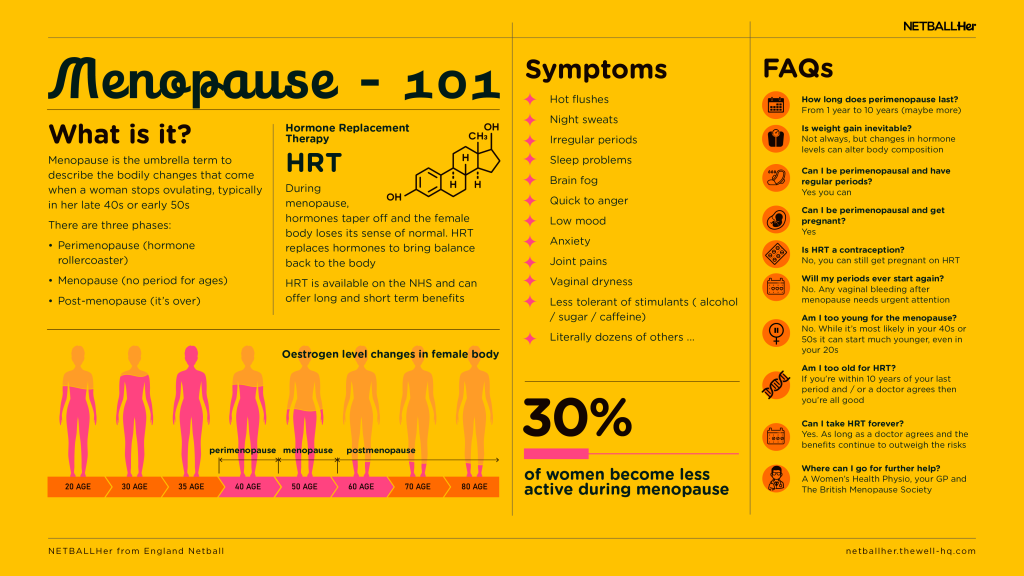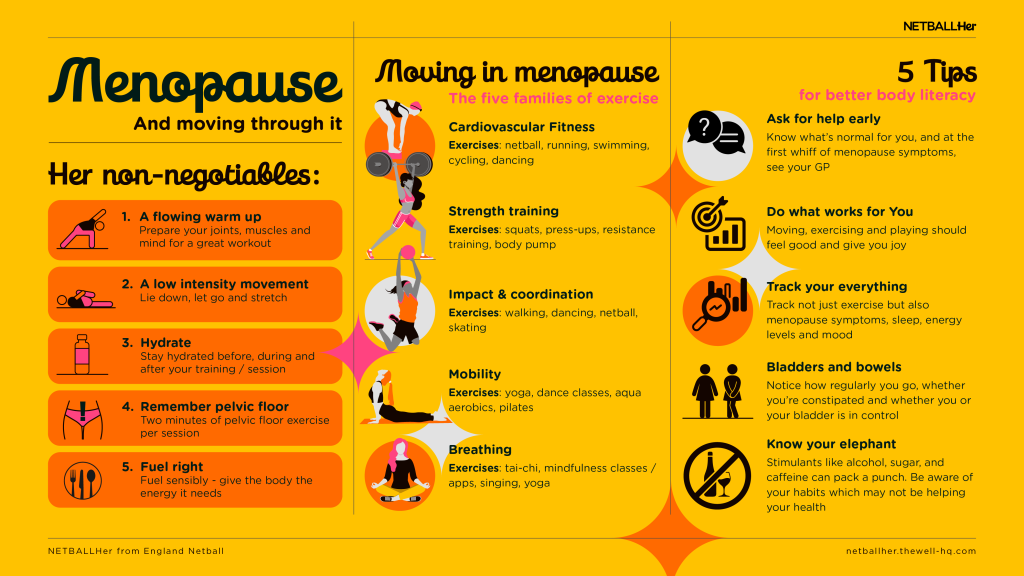This content was created in partnership with England Netball & TheWellHQ
What is the Menopause?

Three phases of natural menopause
Perimenopause: Before the hormones of your cycle wind down, they can become erratic. This can cause the onset of symptoms, and women can experience irregular periods. Cycles tend to shorten during the early stage of the perimenopause, and then get longer, with periods less and less frequent as a woman gets closer to the menopause. The perimenopause is the chapter that’s synonymous with the ‘hormonal rollercoaster’, and it can last up to 10 years.
Menopause: The menopause itself is actually the briefest of all three phases. For over 50s, “menopause” is the one-year mark after a woman’s periods have stopped. For over 45s “menopause” is the two-year mark after a woman’s last period.
Post menopause: Post menopause is the time after menopause – i.e. the rest of your life.
Does menopause experience differ by ethnicity?
We’re learning more and more as menopause research advances, but the short answer to the question, based on early evidence, is yes.
Research suggests that black women are three times more likely to have an early menopause than white women. With that, coaches, teammates and netballers themselves need to be aware of menopause signs and symptoms now, and begin those crucial conversations sooner rather than later, for the sake of the whole team.
Symptoms of perimenopause can significantly impact a player’s experience of netball, but we also know that women, in the years after menopause, are at a greater risk of various health issues, from high stress, to bone and joint pain to pelvic floor issues and even heart disease.
So when a woman goes through menopause early, her risks of these health issues increase earlier in life too.
How is the menopause diagnosed?
A clinician can diagnose the perimenopause (ie the first phase of menopause) based on a woman’s age and symptoms. In other words, if you’re the right age (around mid 40s) and present with menopause symptoms then you should be diagnosed as such without the need for a blood test.
Note that you can be perimenopausal and still have regular or irregular periods. This means pregnancy is still possible.
Don’t be tempted by over-the-counter menopause tests. They aren’t shown to be accurate or reliable when it comes to diagnosing whether you are in perimenopause. There are circumstances where your doctor might take a blood test, but this will depend on things like your age, your symptoms and the medication you’re taking. In the UK, the body that decides on healthcare best-practise is The National Institute for Health and Care Excellence, or NICE.
NICE recommends that women over the age of 45 can be diagnosed on age and symptoms, and don’t need a blood test to check hormone levels.
A menopause diagnosis means it’s time to look into treating and managing symptoms but other blood tests, to check thyroid function or iron levels, may be required to rule out other conditions.
If you’re under 40 then you will be offered a blood test as this may be an early menopause also known as POI, or Primary Ovarian Insufficiency.
Moving in Menopause

For more information on the Menopause and other key female life stages on the NETBALLHer website PRESS HERE
The information contained on this website is for general information purposes only and is not intended to provide health advice, diagnose, treat, cure or prevent disease. Always seek medical advice.

